Mephisto
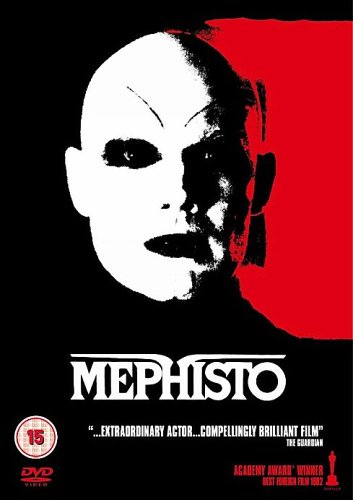 Mephistopheles, or Mephisto, is a character from German folklore that is an evil demon, or more suitably, the devil. The demon element to the character appears in the German legend of Faust in which an ambitious man makes a pact with the devil in order to obtain ultimate power and great success. This legend plays a huge part in this film, though the story is also heavily based on Klaus Mann's novel Mephisto and the life of Gustaf Grünfgens, the theater manager, actor, and director who was revered as one of the best of his time. Grünfgens's career prior to the rise of Hitler and the Nazi regime was fruitful, and being a sympathizer with the Third Reich certainly helped him prosper and continue to do so after the fall of Hitler. Grünfgens was also bipolar, for lack of a better word, when it came to his morals, sexuality, and political affiliations. Knowing this information may or may not take away some of the magic of the film. However, Klaus Maria Brandauer's performance is more than a stormy reincarnation of Grünfgens and the Faustian legend. It shows the upside of having an egoist portray a person who is so sure of themselves that they deny their affiliation with true evil.
Mephistopheles, or Mephisto, is a character from German folklore that is an evil demon, or more suitably, the devil. The demon element to the character appears in the German legend of Faust in which an ambitious man makes a pact with the devil in order to obtain ultimate power and great success. This legend plays a huge part in this film, though the story is also heavily based on Klaus Mann's novel Mephisto and the life of Gustaf Grünfgens, the theater manager, actor, and director who was revered as one of the best of his time. Grünfgens's career prior to the rise of Hitler and the Nazi regime was fruitful, and being a sympathizer with the Third Reich certainly helped him prosper and continue to do so after the fall of Hitler. Grünfgens was also bipolar, for lack of a better word, when it came to his morals, sexuality, and political affiliations. Knowing this information may or may not take away some of the magic of the film. However, Klaus Maria Brandauer's performance is more than a stormy reincarnation of Grünfgens and the Faustian legend. It shows the upside of having an egoist portray a person who is so sure of themselves that they deny their affiliation with true evil.
br /> Brandauer plays Hendrik Hoefgen, an up-and-coming actor and theater director in Hamburg, Germany. In the beginning, Hoefgen wanted to take the stiffness from the stage by eliminating the distance between audience and performer. His aim was to create a new theater, full of vibrant and charismatic characters who could move audiences in a way that had never been done before. He also romanticized the idea of bohemian theater—one in which miners and laborers could feel comfortable and included. This led to his passionate pursuit of a revolution through theater, though there was little to revolt against in the beginning.
A Man Escaped
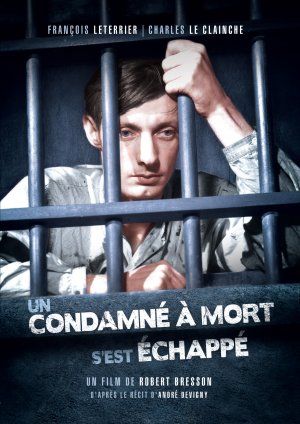 What do you think of when you hear the term French New Wave? Do you think of Francois Truffaut's The 400 Blows or Breathless, Jean-Luc Godard's first feature film? Surely the majority of those who adore the movement and acknowledge its influences believe that Truffaut, and in some circles, Godard, were the inventors of the French New Wave. Not to spit in anyone's soup, but I'd argue against those claims using this film alone. The attractiveness of a film like The 400 Blows comes from its simplicity and the relation of the film to the director. Of course there's the auteur theory mixed in and Truffaut did write the film, but the most important aspect of it is the director’s relation to story and how well its messages were relayed based on that relationship. The 400 Blows is an autobiographical tale that stems from Truffaut's boyhood, and therefore no-one else could have made it work except him. In that sense, it resembles art more than entertainment because of the personal aspect and a story about societal detachment, which many people can relate to. But he wasn't the first to make such a film. Robert Bresson, one of my favorite directors, did the same thing these directors did, only first. A Man Escaped is about a French POW, and in reality Bresson spent time as a POW in Germany before becoming a screenwriter and director.
What do you think of when you hear the term French New Wave? Do you think of Francois Truffaut's The 400 Blows or Breathless, Jean-Luc Godard's first feature film? Surely the majority of those who adore the movement and acknowledge its influences believe that Truffaut, and in some circles, Godard, were the inventors of the French New Wave. Not to spit in anyone's soup, but I'd argue against those claims using this film alone. The attractiveness of a film like The 400 Blows comes from its simplicity and the relation of the film to the director. Of course there's the auteur theory mixed in and Truffaut did write the film, but the most important aspect of it is the director’s relation to story and how well its messages were relayed based on that relationship. The 400 Blows is an autobiographical tale that stems from Truffaut's boyhood, and therefore no-one else could have made it work except him. In that sense, it resembles art more than entertainment because of the personal aspect and a story about societal detachment, which many people can relate to. But he wasn't the first to make such a film. Robert Bresson, one of my favorite directors, did the same thing these directors did, only first. A Man Escaped is about a French POW, and in reality Bresson spent time as a POW in Germany before becoming a screenwriter and director.
The film opens with a note from Bresson that simply states, “This is a true story.” Nowhere does it imply that it is his story or something similar, just that it's not a fabrication. Followed by this is the image of a stone and etched into it is a short passage paying respects to 7,000 Frenchmen who were killed by Nazis and Nazi allies. Next we see a simple sequence of a handsome man riding in a car. The camera is focused on his hands, which slowly creep towards the door handle of the moving vehicle. As the camera pulls away, we see two men handcuffed beside him and can make out “SS” uniforms on the driver and front passenger. We see the man hesitate and consider leaping from the car, and eventually he musters up the courage to do so. Within seconds he's returned and pistol-whipped as punishment, but they keep him alive and put him in prison. This opening sequence sets the stage for a story that has enough suspense to stand up to Hitchcock and enough pathos and realism to be considered the true beginning of French New Wave.
Dog Days

Filmed over the course of three summers in Austria, this is one of the rare films that uses weather as a means to accentuate emotions. It is therefore what I consider to be "cold cinema." I coined the term to apply to a filmmaking technique that is not "warm" - or rather, one that doesn’t pull at your heartstrings or target a certain emotion from a general audience. I don't even think that cold cinema expects an audience but, when found, it always seems to leave a lasting impression.
The key to this kind of movie is the emphasis on characters and secondary elements of the story, such as weather. Foreign films tend to use this technique a lot, and for a while films like There Will Be Blood and Doubt were sort of recent American equivalents. They are movies that demand no particular response, and therefore every viewer takes away something different. Many of them don't have soundtracks. I think it's a wonderful technique because it forces you to figure out why you were impressed with or disliked a movie. Dog Days is an introductory accomplishment for Seidl (Import/Export, Models) and is a marvelous example of the roles we take on as human beings, and the conditions that make some of us exercise power over others. Figuring out that this is what the film meant to me was far more rewarding than having a definite interpretation.
Continue ReadingLoves of a Blonde
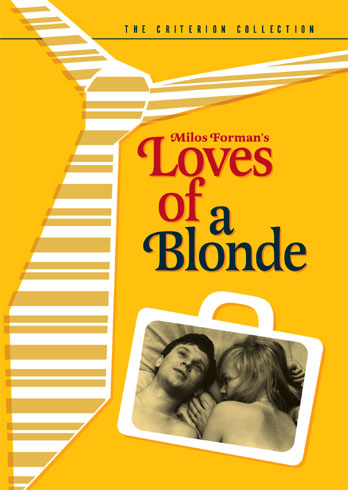 New Wave filmmakers are given credit for the way that contemporary cinema has developed. French and Italian directors in the '60s were, and still are, given the most attention abroad for their work, but there are many films from Iran, East Asia and Czechoslovakia that are lesser-known gems. Milos Forman's filmography consists of many acclaimed films, including One Flew over the Cuckoo's Nest and Amadeus, but Loves of a Blonde marks the beginning of his worldwide popularity and his first Academy Award nomination. When the film premiered at the New York Film Festival, it was considered to be as endearing and classic as Truffaut's The 400 Blows, which had its premier a few years earlier. The prevailing formalistic approach to filmmaking is absent here; the film is simple, realistic, and shot in real-time.
New Wave filmmakers are given credit for the way that contemporary cinema has developed. French and Italian directors in the '60s were, and still are, given the most attention abroad for their work, but there are many films from Iran, East Asia and Czechoslovakia that are lesser-known gems. Milos Forman's filmography consists of many acclaimed films, including One Flew over the Cuckoo's Nest and Amadeus, but Loves of a Blonde marks the beginning of his worldwide popularity and his first Academy Award nomination. When the film premiered at the New York Film Festival, it was considered to be as endearing and classic as Truffaut's The 400 Blows, which had its premier a few years earlier. The prevailing formalistic approach to filmmaking is absent here; the film is simple, realistic, and shot in real-time.
The story takes place in Zruc, a desolate Czech town adjusting to Communist rule. The war has rendered the female to male ratio 16 to one, and women of all ages are more or less forced into factory labor making shoes and textiles. The factory manager is sympathetic to the changing times and their needs, and he's concerned about the town's fate. Like a doting father, he worries about the hundreds of girls under his employ and approaches an army officer for help. He asks him to bring a regiment of soldiers into town in order to cure the longings of the young ladies.
Songs from the Second Floor
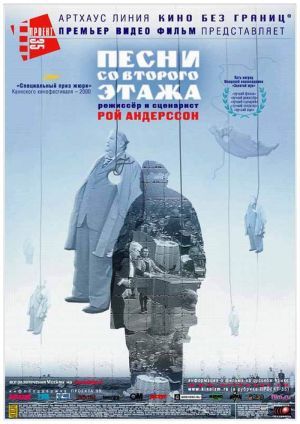 This film is one in which everyone is a spectator, being human is extremely difficult, and the viewer is given a looking-glass into the sordid lives of characters who function in a gray existence.
This film is one in which everyone is a spectator, being human is extremely difficult, and the viewer is given a looking-glass into the sordid lives of characters who function in a gray existence.
Many compare the film to Swedish Opera, but for me it is like a blend of performance art and visual poetry that takes everyday life and heightens your awareness of its many disappointments to the point that it is both painful and funny.
Who Wants to Kill Jessie?
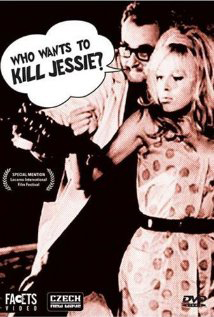 Who Wants to Kill Jessie? is an underrated gem from a Czech New Wave director that hardly anybody has heard of. It plays on the conventions of comic strips, the mystery of dreams, and communist efforts in Czechoslovakia—with mad scientists who represent brainwashing.
Who Wants to Kill Jessie? is an underrated gem from a Czech New Wave director that hardly anybody has heard of. It plays on the conventions of comic strips, the mystery of dreams, and communist efforts in Czechoslovakia—with mad scientists who represent brainwashing.
Ruzenka (Dana Medricka) and Jindrich (Jiri Sovak) are a married couple who are both scientists. Each is trying to come up with an invention that will lead them to a Nobel Prize, and both are fairly eccentric. Ruzenka is in the medical field and has found a formula that she's named “KR VI” that can take undesirable qualities about dreams and replace them with pleasant ones. Jindrich is an engineer trying to find a way to increase production in his otherwise incompetent firm.
Elevator to the Gallows
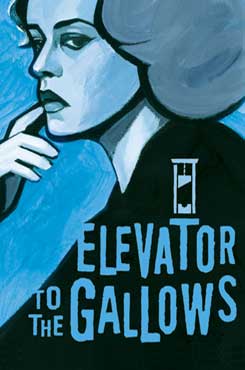 Combining the splendid black and white photography of Henri Decaë, the magnetic force of Jeanne Moreau, and a superb jazz score by Miles Davis, Louis Malle’s directorial debut is incomparable in terms of mood and style.
Combining the splendid black and white photography of Henri Decaë, the magnetic force of Jeanne Moreau, and a superb jazz score by Miles Davis, Louis Malle’s directorial debut is incomparable in terms of mood and style.
The film was poorly received by critics but has since been deemed a masterpiece, both in terms of direction and pre-new wave modernity. The score by Miles Davis, accompanied with then unknown players and bop drummer Kenny Clarke, would fuel Davis to take on certain conventions within jazz—most notably, the kind heard through his album Kind of Blue that followed two years after the film’s release. Decaë’s work would also become prominent in the works of several new wave directors, specifically Truffaut and Chabrol. Perhaps the most interesting quality to the film is the fact that it is a rarity from Malle. It marks the first and only time that the director tried his hand at noir, or worked so tightly in the confines of a genre. As it goes with films like Riffifi and Le Cercle Rouge, the criminal aspects of it are somewhat downplayed by a wonderful cast and outstanding photography.
Murderous Maids
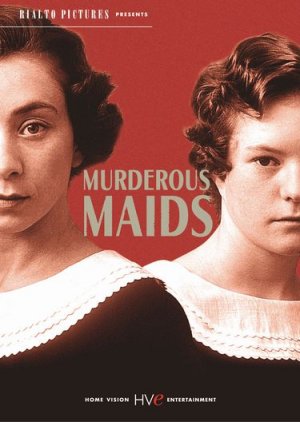 As stated in the previous review of Sister My Sister, Murderous Maids is a biopic on the Papin sisters. I listed the flaws of the former, and surprisingly found few to no flaws in this production. Alluding to the various interpretations of the sisters' lives, this film is more complete due to the fact that it goes into their childhood and background as maids, beginning with the convent where they were raised and educated. There's a hefty age difference between the two, and Christine is shattered when her mother informs her that her father, who's away at war, raped their older sister Emilia, who later became a nun. When the young Christine, who is also very religious, expresses her desire to also be a nun, her mother revolts out of spite, telling the child she would be a servant like her.
As stated in the previous review of Sister My Sister, Murderous Maids is a biopic on the Papin sisters. I listed the flaws of the former, and surprisingly found few to no flaws in this production. Alluding to the various interpretations of the sisters' lives, this film is more complete due to the fact that it goes into their childhood and background as maids, beginning with the convent where they were raised and educated. There's a hefty age difference between the two, and Christine is shattered when her mother informs her that her father, who's away at war, raped their older sister Emilia, who later became a nun. When the young Christine, who is also very religious, expresses her desire to also be a nun, her mother revolts out of spite, telling the child she would be a servant like her.
While Lea (Julie-Marie Paramentier) was still in school the adult Christine (Sylvie Testud) slaved away in various households as her mother collected most of the earnings and found her new positions. When Lea became a teenager her mother put her to work as well, and Christine's protests to this were due to the fact that she wanted a better life for her and because Lea informed her that the men in the current house she worked at took certain liberties with her and their mother. When their mother informs them that she plans to find work for them in the same household, the two are very pleased. They learn how the place works and do a splendid job until the volatile Christine ruins it and they're back at square one. She's forced to split from her sister, who she has a sexual attachment to, and finds work alone in a wonderful estate with a fairly nice woman and her adult daughter.
The Farewell
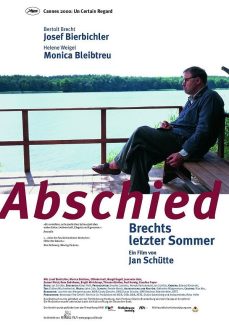 The Farewell is an account of the final days of the poet, playwright, and theater director, Bertolt Brecht (played by Josef Bierbichler). It recounts a single day of his vacation miles outside of Berlin where he prepared, alongside his reviser, wife, daughter, and mistresses, for the new theater season. The interests of everyone present clash on several matters, most importantly Brecht's health, which was in rapid decline. His wife Helene/Helli (Monica Bleibtreu) stands by as others dote on him. Many, including Kathe (Jeanette Hain), a young actress who seems to be his latest muse and mistress, take priority over his own wife and daughter, Barbara, in terms of attention. Also present on the estate for the vacation is Wolfgang Harich and his wife Isot. Harich is a political reformer who openly shares his wife with Brecht. To complete the picture is Elizabeth, his reviser, and Ruth, an old mistress past middle age who is now an alcoholic and an emotional wreck over the fact that Brecht no longer takes interest in her.
The Farewell is an account of the final days of the poet, playwright, and theater director, Bertolt Brecht (played by Josef Bierbichler). It recounts a single day of his vacation miles outside of Berlin where he prepared, alongside his reviser, wife, daughter, and mistresses, for the new theater season. The interests of everyone present clash on several matters, most importantly Brecht's health, which was in rapid decline. His wife Helene/Helli (Monica Bleibtreu) stands by as others dote on him. Many, including Kathe (Jeanette Hain), a young actress who seems to be his latest muse and mistress, take priority over his own wife and daughter, Barbara, in terms of attention. Also present on the estate for the vacation is Wolfgang Harich and his wife Isot. Harich is a political reformer who openly shares his wife with Brecht. To complete the picture is Elizabeth, his reviser, and Ruth, an old mistress past middle age who is now an alcoholic and an emotional wreck over the fact that Brecht no longer takes interest in her.
On the morning of their last day of vacation a Stasi officer comes calling and wishes to speak with Brecht's wife in private. He asks if the Harichs are present in their company, and once this has been confirmed, he informs Helli that by sundown they plan to arrest their friends for high treason, no doubt due to Wolfgang's radical activities. The officer asks that everyone on the estate clear out by six o’clock that evening and gives her a number to call and a signal to recite when it's safe for them to take action. He also asks her to not inform the Harichs of the arrest or their conversation, and in doing so, she will keep herself and Brecht out of danger.
Lilya 4-Ever

Have you ever anticipated something, like a promotion at your job, and then done something irresponsible? You know, spend money recklessly or boast about your new status. And then, the promotion doesn’t go through and you've not only exposed an ugly side of yourself, but because of the money and support you wasted, you find that you're in a terrible situation. This is where this film begins.
Lilya (Oksana Akinshina) is a teenager in Soviet Russia who has a bit of good news to share amongst her small group of friends. Her mother met a Russian-American on an internet dating website and he has arranged to have her and Lilya accompany him to the States. So Lilya prances around her squalid town rubbing this good news in everyone's face. She behaves as if nothing matters now that she is escaping the bleak future that most of her peers will meet. Just as she has packed her things and made a complete fool of herself, her mother informs her that she and her new boyfriend will be going without her. She makes a shaky promise to send for her after they are settled. Though Lilya is only a teenager, she knows the feeling of being abandoned quite well. After her mother leaves, she must say goodbye to her former comforts and experience the same hardships as everyone else.
Continue Reading




